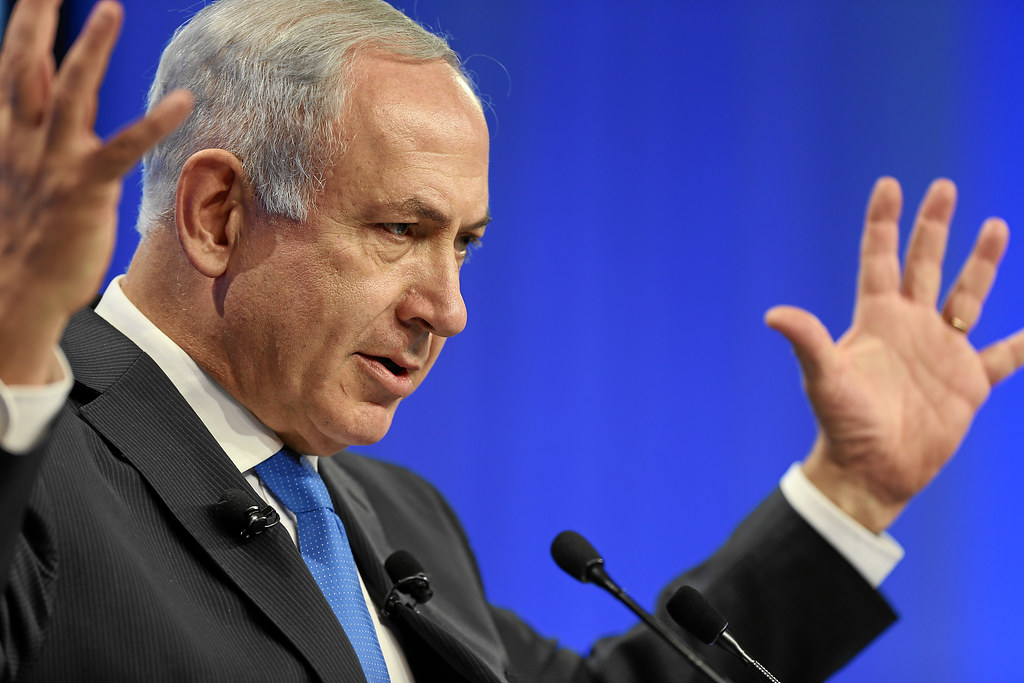Israel in trouble at home and abroad
Hwang Yuihyun (SNUAC)
Israel’s internal divisions are deepening. On June 9, National Unity Party leader Benny Gantz resigned from the cabinet, criticizing Prime Minister Benjamin Netanyahu. Gantz, the main opposition leader, participated in the war cabinet with the right-wing coalition led by Netanyahu for national unity after the war broke out in October 2023, but continues to criticize Prime Minister Netanyahu’s policy of failing to rescue hostages kidnapped by Hamas and prolonging the war.
Gantz had already said in May that he would withdraw from the war cabinet if Netanyahu did not propose a post-war plan. Two lawmakers who had participated in the war cabinet without voting rights also withdrew following Gantz, and the war cabinet consisting of Prime Minister Netanyahu, Defense Minister Yoav Gallant, Gantz, and three lawmakers without voting rights virtually collapsed. Accordingly, on June 17, Prime Minister Netanyahu announced dissolution of the war cabinet. declared disbandment. War-related policies will be discussed at the National Security Council and then carried out with the approval of the Cabinet.
Meanwhile, differences of opinion between Netanyahu and the The Israel Defense Forces(IDF) also have emerged. On June 16, the IDF announced that it would stop fighting in Gaza during daylight hours for the purpose of providing humanitarian aid, which provoked harsh criticism of Netanyahu.
Externally, conflict between Israel and Lebanon’s Hezbollah is increasing. On June 11, after the Israeli military killed a senior Hezbollah leader in an airstrike in southern Lebanon, Hezbollah began to increase attacks on northern Israel with rockets and drones. Hezbollah announced that it would attack Israel until the end of the war in the Gaza Strip, and Israel approved a plan to attack Lebanon on June 18, indicating that it might launch a full-scale war. There are growing concerns that Hezbollah, which is considered to have a stronger military power than Hamas, will clash with Israel on a large scale, further destabilizing the situation in the Middle East.
내부에서는 분란, 외부에서는 분쟁 확대…내우외환에 놓인 이스라엘
황의현(아시아연구소)
이스라엘의 내부 분열이 심화되고 있다. 6월 9일 베니 간츠 국가통합당 대표가 베냐민 네타냐후 총리를 비난하며 내각에서 사임했다. 야당 주요 지도자인 간츠는 지난 2023년 10월 전쟁이 발발한 이후 국민통합을 이유로 네타냐후가 이끄는 우파 연정과 함께 전시 내각에 참여했으나, 하마스가 납치한 인질을 구출하지 못하고 전쟁을 장기화하는 네타냐후 총리의 정책을 계속해서 비판했다. 간츠는 이미 지난 5월 네타냐후가 전후 계획을 수립하지 않으면 전시 내각에서 탈퇴할 것이라고 밝힌 바 있다. 의결권 없이 전시 내각에 참여해 온 의원 2명도 간츠에 이어 탈퇴하면서 네타냐후 총리, 요아브 갈란트 국방부 장관, 간츠와 의결권 없는 의원 3인으로 구성된 전시 내각은 사실상 붕괴되었고, 이에 6월 17일 네타냐후 총리는 전시 내각 해산을 선언했다. 앞으로 전쟁 관련 정책은 국가안보회의에서 논의되며 이후 내각의 승인을 받는 방식으로 수행될 예정이다. 한편 6월 16일에는 이스라엘군이 인도적 지원을 목적으로 낮 시간대 전투를 중단한다고 발표하자 네타냐후 총리가 반발하는 등 네타냐후와 군 사이의 의견 차이도 나타나고 있다.
대외적으로 이스라엘과 레바논의 헤즈볼라 사이 갈등이 고조되고 있다. 6월 11일 이스라엘군이 레바논 남부를 공습해 헤즈볼라 고위 지도자를 사살하자 헤즈볼라가 로켓포와 드론으로 이스라엘 북부를 공격했다. 헤즈볼라는 가자지구에서 전쟁이 끝날 때까지 이스라엘을 공격하겠다고 밝혔으며, 이스라엘은 6월 18일 레바논 공격 계획을 승인하며 전면전에 나설 수도 있다는 움직임을 보였다. 하마스보다 강력한 군사력을 가지고 있다고 평가되는 헤즈볼라까지 이스라엘과 대대적으로 충돌해 중동 정세를 더욱 불안하게 만들 것이라는 우려가 커지고 있다.

